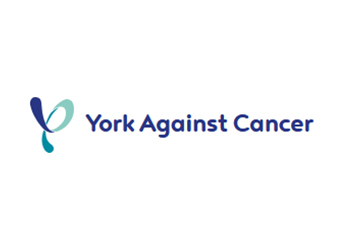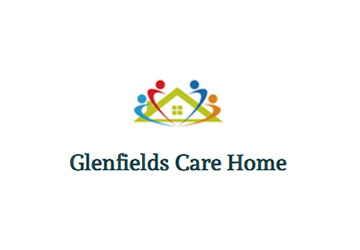The Care Quality Commission (CQC) has found that Hull City Council’s adult social care provision “requires improvement” following an inspection. The independent regulator found some people have been made to wait up to 867 days are their ‘annual review’.
The CQC assesses how well local authorities are meeting their responsibilities to ensure people have access to adult social care and support. After assessing provision in various areas the CQC has “identified where improvements are needed” in Hull.
Adult social care provision is a considerable part of the council’s role in the city. This translates to it being a highly significant proportion of its spending. The CQC’s report states that more than 25p in every £1 the council spent in 2023/24 was put into adult social care, with the authority spending a total of £114.2 million on its provision.
The assessment team found:
- People were experiencing waits of up to 853 days for occupational therapy assessments, creating prolonged uncertainty for those requiring support.
- Many people were not receiving annual reviews in a timely manner, with some waiting up to 867 days which could result in their health deteriorating.
- People experienced varied transitions from child to adult services. Although a specialist transitions team carried out assessments, not everyone received one, and late referrals into adult services often limited the time available for planning.
- There were missed opportunities to coordinate preventive services alongside people, partners, and the local community. Prevention was jointly owned across the local authority due to it covering several service areas; however, a lack of coordination limited progress.
Despite the criticisms, the CQC did praise the council’s provision in some areas. These include:
- The local authority’s Changing Futures programme demonstrated effective multi-agency working through shared case management systems, enabling early identification of people who repeatedly presented at hospital for issues that could be addressed through community support.
- The council provides extensive training opportunities to unpaid carers and partners, with programmes that reflect emerging issues and good practice to benefit local people.
Chris Badger, CQC’s chief inspector of Adult Social Care and Integrated Care, said: “During our inspection of Hull City Council, we found an authority demonstrating effective partnership working that delivers real benefits for people. For example, they were collaborating to deliver services such as the Integrated Care Centre, which provides joint health and social care responses for the city’s most vulnerable residents. The council had also developed supported living schemes through strong partnership arrangements.
“For people who needed a care placement, the council placed 397 people outside Hull as of May 2025, with 227 within 10 miles of the city’s border. Placements were made in a person-centred way, sometimes closer to people’s homes than in-Hull options. Wherever possible, people were offered a choice of placement and supported to return locally when suitable alternatives became available.
“However, assessors found significant concerns about how people’s needs were being assessed, with many experiencing unacceptable waits and inconsistent support from staff. This particularly affected neurodiverse and autistic people, whose assessments did not always fully consider their strengths and individual care needs.
“People also reported difficulties accessing equipment and minor home adaptations to maintain their independence, with some waiting over a year for items that could support their wellbeing. Leaders and staff at Hull City Council have identified where improvements are needed and are working to develop and embed these changes. We look forward to returning and seeing their progress.”
In response to the report, Hull City Council issued the following statement: “Hull City Council reaffirms its commitment to delivering high quality and inclusive adult social care services following the publication of the Care Quality Commission’s (CQC) Local Authority Assessment. Although the report rates Hull as ‘Requires Improvement’, with two areas where significant shortfalls were identified, the assessment also recognised important areas of strength, including our strong safeguarding arrangements, effective partnership working, and innovative approaches such as the Integrated Care Centre and Changing Futures Programme.”
Councillor Linda Chambers, portfolio holder for adult services and public health, said: “I am pleased that the report highlights improvements to support carers and that there are no delays to carers assessments, and I am assured to see that the implementation of our Hull Autism strategy is already focused on improving lives for neurodivergent people within the city. There is more work to do to ensure everyone is having a good experience and I am confident that we have the dedicated workforce to deliver the necessary improvements.”
Tracy Meyerhoff, Hull City Council’s executive director for Adult Social Care and Health said: “We fully accept the findings of the Care Quality Commission’s assessment, including that some residents have waited too long for assessments and reviews, and that we need to do more to support people to live healthier lives. We are absolutely focused on ensuring that every resident who needs care or support can access it in a timely and fair way. We are committed to ensuring people have choice and control over the support they receive – so it’s tailored to their individual needs, preferences, and aspirations, and truly reflects what matters most to people.
“Our goal is to deliver adult social care services that people in Hull can have complete confidence in – and we will continue to report openly on our progress as we make these improvements. We are already working with the CQC, sector support and the LGA to deliver the improvements required through the implementation of a detailed Improvement Plan that focuses on reducing waiting times, strengthening care planning, and improving people’s experience of our services. The report highlights areas of strength and acknowledges the dedication of our staff and partners who work tirelessly every day to support people in Hull.”
The council’s statement concludes: “Hull City Council have been focusing on service improvement in recent months, including undertaking an ADASS Adult Social Care focussed Peer Challenge and continuing to monitor and assess our delivery against national standards through our ASCOF (Adult Social Care Outcomes Framework) measures, both of which present a more positive assessment of the council’s overall performance.”
By: Andrew Spence, LDRS




























































